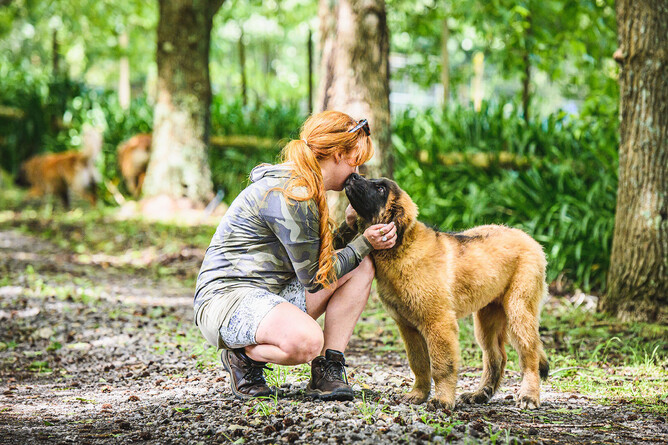Just like humans, dogs need different nutrients at different life stages. Puppies have different dietary needs than adult dogs, and senior dogs have different needs than both puppies and adults. So, what should you be feeding your dog at each stage of its life, and do you need special food as they transition from puppyhood to adulthood? Here are our tips.
Puppies (0-6 Months)
Puppies need a diet that is high in calories and protein to support their rapid growth. They also need more calcium and phosphorus than adult dogs to help them develop strong bones and teeth. Puppies should eat three to four small meals per day until they are about four months old, at which point they can be transitioned to two meals per day. Typically, puppies need more protein, fat, and certain minerals than an adult diet. Calcium, phosphorus, iron, copper, manganese, and zinc are therefore all higher in most puppy food formulas to support the growth of young pups.
Adult Dogs (1-7 Years)
Adult dogs need a diet that is complete and balanced, meaning it contains all the nutrients they need in the right proportions. The best way to ensure your dog is getting a complete and balanced diet is to feed them quality commercial dog food that has been formulated by a veterinary nutritionist. If you are feeding your dog homemade meals, make sure you are including all the essential nutrients they need and consult with a veterinary nutritionist to ensure you are not over- or under-feeding any nutrients. Adult dogs should eat two meals per day.
Senior Dogs (7+ Years)
Senior dogs often have decreased energy levels and may start to experience weight gain as they age. Their diet should be formulated to meet their changing needs, which may include fewer calories and less fat than when they were younger. Senior dogs may also benefit from supplements, such as omega-3 fatty acids, to help keep their joints healthy as they age. Consult with your veterinarian to see if supplements are right for your senior dog. Most senior dogs can continue eating two meals per day, but some may do better on one meal per day or small frequent meals throughout the day.
A dog's dietary needs change as they move through different life stages from puppyhood to adulthood and ultimately senior hood and as such so does the quantity of the food you should feed them.
Puppies need more calories and calcium than adult dogs, while senior dogs may need fewer calories overall and additional supplements to keep their joints healthy. Feeding your dog a complete and balanced diet at each stage of their life is the best way to ensure they stay happy and healthy for years to come.
The Taste of the Wild formula contains all the necessary ingredients that your pet will benefit from no matter what their age is, including real protein from fish, meat or fowl, antioxidants, omega fatty acids. The range includes a puppy and small breed formula with a small kibble size which makes it easy for small mouths to chew, while the crunchy texture helps keep teeth clean. Our recipes provide all the vitamins, minerals, and other essential nutrients your pet needs throughout their life - we only include good things, so you know your pup is getting everything they need in the one formula. Try it out with your pet today!





